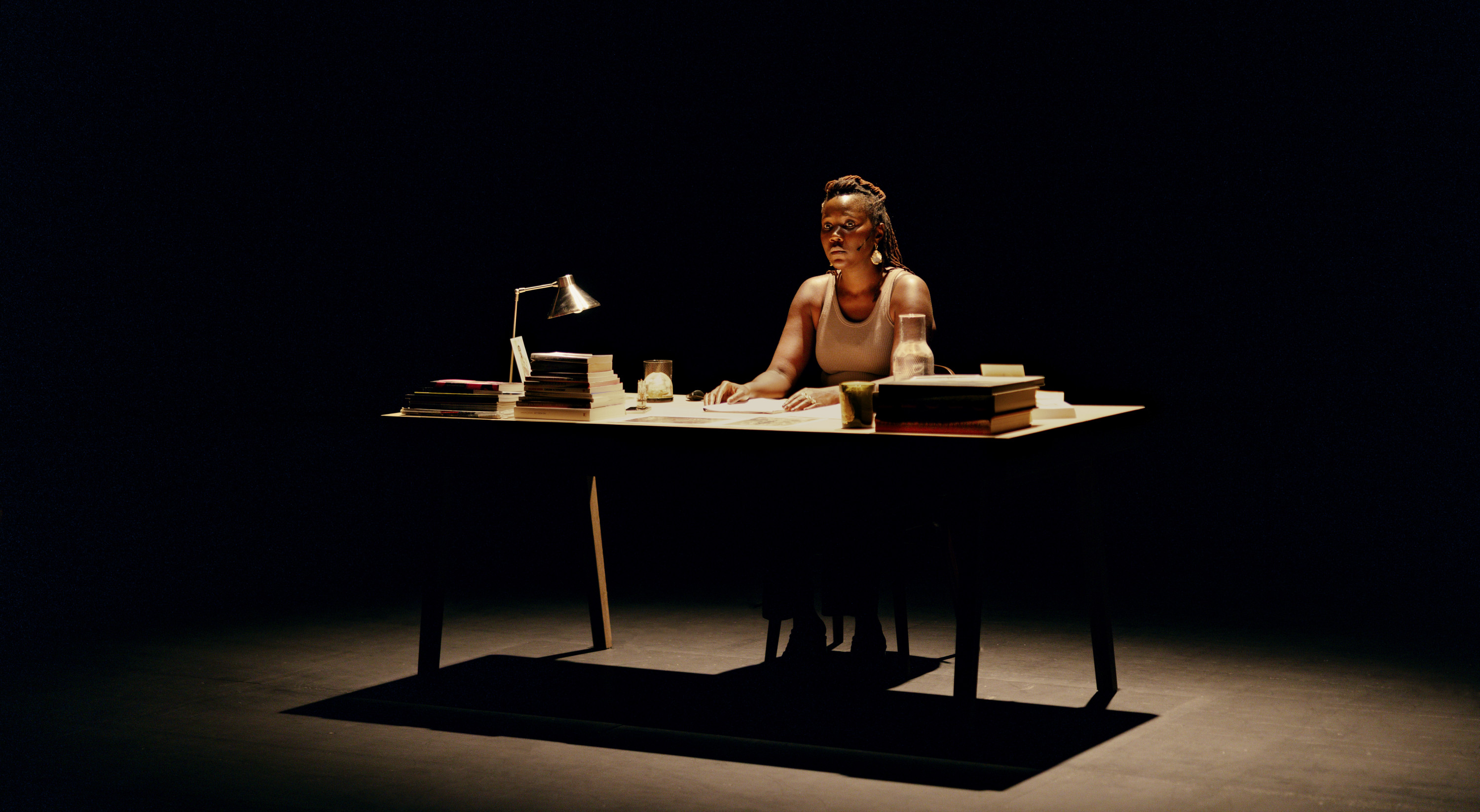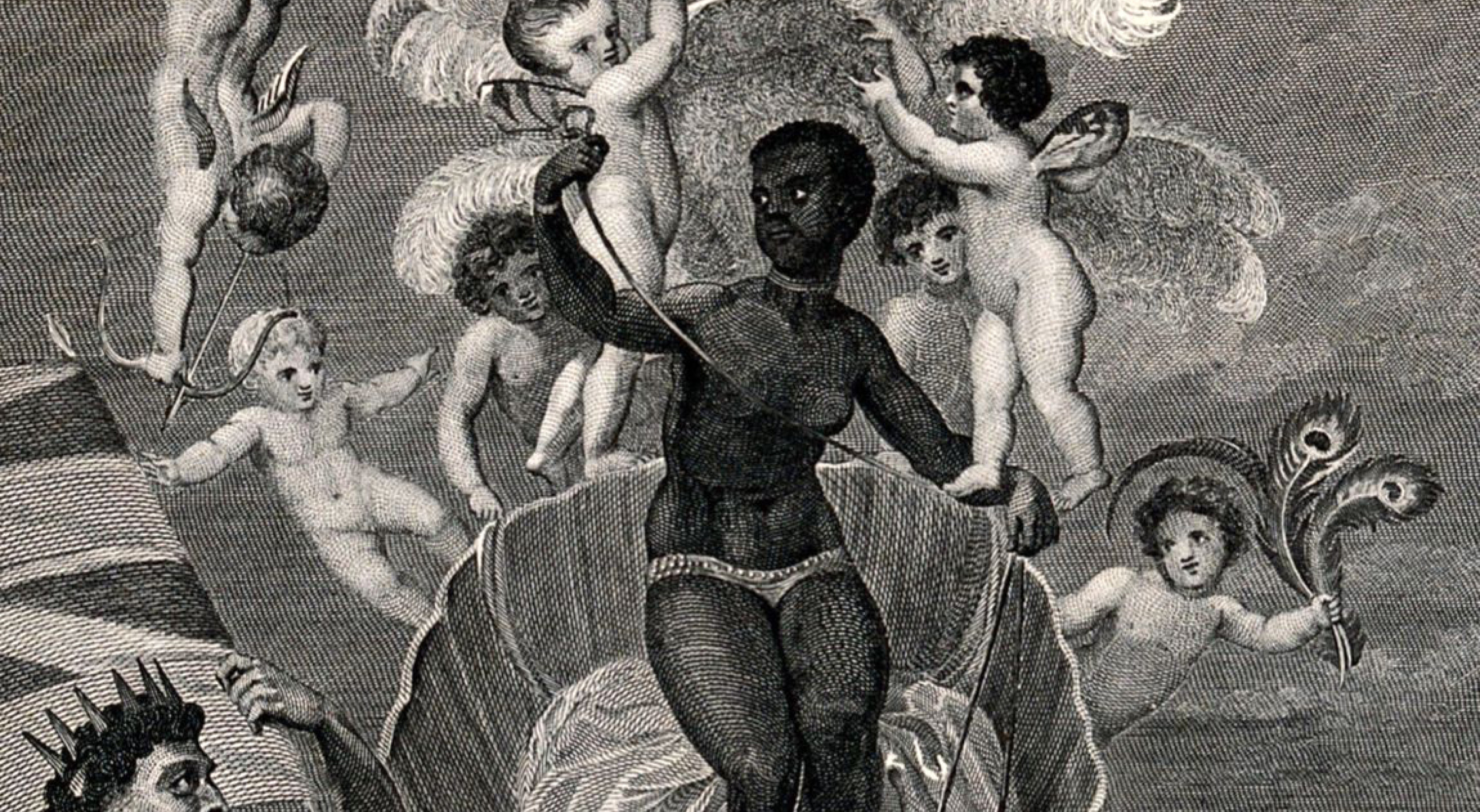Alice Diop
Le Voyage de la Vénus Noire
novembernov 19 – 30
novembernov 24
Wednesday november 19
19h30
Thursday november 20
19h30
Friday november 21
19h30
Saturday november 22
18h30
Sunday november 23
15h30
Wednesday november 26
19h30
Thursday november 27
14h30
Friday november 28
19h30
Saturday november 29
18h30
Sunday november 30
15h30
Monday november 24
19h - Rencontre avec Alice Diop et Robin Coste Lewis
Concept Alice Diop. Text Robin Coste Lewis. With Alice Diop. Translation and artistic collaboration Nicholas Elliott. Outside perspective Thierry Thieû Niang. Lighting design Marie-Christine Soma. Props Lucie Basclet. Costumes by LEMAIRE. Rehearsal director Léa Boublil. Translation review Jean-Philippe Tessé. Set design, stage management and production teams at MC93.
Production MC93 – Maison de la Culture de Seine-Saint-Denis; Festival d’Automne à Paris
Co-production Comédie de Genève; La Comédie de Valence – CDN Drôme-Ardèche; Wiener Festwochen | Freie Republik Wien; Kunstenfestivaldesarts; Centre Dramatique National Orléans – Centre-Val de Loire; MansA – Maison des Mondes Africains
The MC93 – Maison de la Culture de Seine-Saint-Denis and the Festival d'Automne à Paris are the delegated producers of this show and present it as a co-realisation.
![]()
All venues at the MC93 are accessible to people with reduced mobility. If your situation requires specific seating arrangements, please contact them by email at reservation@mc93.com.
La Fondation de France s’associe au Festival d’Automne pour l'accompagnement artistique d’Alice Diop.
Alice Diop first came across the prose poem by Robin Coste during an artist’s residency in New York. She then turned her attentions to it in 2023 as part of her Carte Blanche at the Festival d'Automne. Indeed, the text made such an impact on her that she decided to bring it to the stage. In it, the female narrator draws up an art history-related epic which goes in search of the ignored, objectified bodies of Black women.
Voyage of the Sable Venus and Other Poems might just as well have been written by Alice Diop herself. Its interweaving of the erudite and dreamlike resembles the driving force of her work in cinema, ranging from the prominence of the spoken word, the presence of the prosaic, and the body and its visions, to the political thinking behind discourse and images. It was love at first sight. As the text itself says, "one day you turn the page of a book, and it’s all right there in front of you". Who is there? The Black Venus. Have we ever seen these two words written side by side? Never. Maybe this is a dream? It is a good sign. Have we looked at it carefully enough? This is the main question. By reading this text aloud, Alice Diop shares a fascinating journey into our visual subconscious through the titles of the works alone. The piece is a journey which might enable us to "start life over again", and perhaps to start the world over again. To bring together, in any case, the fragmented bodies of Black women on the same ship, and to transform a story of absence into an acknowledgement of omnipresence: "We went everywhere in time because we were everywhere in time".
In the same place






